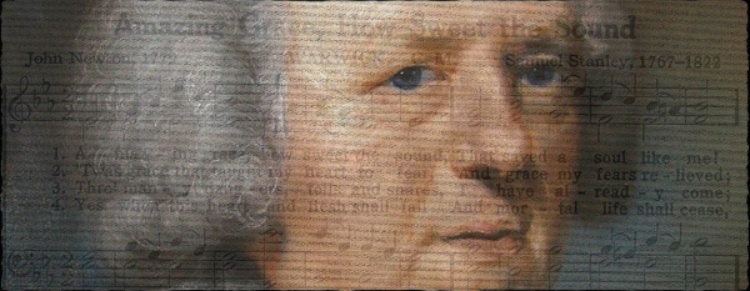I am a great admirer of John Newton, and there are few people who I think have better understood God’s grace. (To learn more about his life, I highly recommend Jonathan Aitken’s biography John Newton: Disgrace to Amazing Grace.) How appropriate that the writer of the hymn “Amazing Grace”, the single most popular hymn in human history, said near the end of his life: “My memory is almost gone. But I remember two things: I am a great sinner, and Jesus is a great Savior.” If each of us would remember every moment these two things, it wouldn’t much matter what else we forget.
In one of his letters John Newton spoke with great insight of the Scriptures and their role in the life of believers. He addressed the illuminating work of the Holy Spirit. Listen to his words, written September 6, 1768:
….When we begin to know ourselves, and to feel the uncertainty and darkness which are inseparable from our fallen nature, how comfortable and encouraging is it to reflect, that God has given us his infallible Word, and promised us his infallible Spirit, to guide us into all necessary truth; and that in the study of the one, and in dependence upon the other, none can miss the way of peace and salvation, who are sincerely desirous to find it. But we are cautioned to keep our eye upon both; and the caution is necessary, for we are too prone to separate what God has joined together, Isaiah 8:20, 1 Cor. 2:10-11.
What strange mistakes have been made by some who have thought themselves able to interpret Scripture by their own abilities as scholars and critics, though they have studied with much diligence! Unless our dependence upon divine teaching bears some proportion to our diligence, we may take much pains to little purpose. On the other hand, we are directed to expect the teaching and assistance of the Holy Spirit only within the limits, and by the medium of the written Word. For he has not promised to reveal new truths—but to enable us to understand what we read in the Bible—and if we venture beyond the pale of Scripture, we are upon enchanted ground, and exposed to all the illusions of our imagination. But an attention to the Word of God, joined to humble supplications for his Spirit, will lead us to new advances in true knowledge.
The exercises of our minds, and the observations we shall make upon the conduct of others, and the dispensations of God's providence, will all concur to throw light upon the Scripture, and to confirm to us what we there read concerning ourselves, the world, and the true happiness revealed to sinners in and through Jesus Christ. The more sensible we are of the disease, the more we shall admire the great Physician; the more we are convinced that the creature is vanity, the more we shall be stirred up to seek our rest in God. And this will endear the gospel to us; as in Christ, and in him only, we can hope to find that righteousness and strength, of which we are utterly destitute ourselves.
I observe in many newspapers, the attestations of people who have been relieved in diseases by the medicines which they have tried, and therefore recommend to others from their experience. Innumerable cases might be published to the honor of the great Physician; none more memorable perhaps than my own. I was laboring under a complication of disorders; fired with raging madness, possessed with many devils, (I doubt it not,) bent upon my own destruction; but he interposed, unsought, undesired. He opened my eyes, and pardoned my sins; broke my fetters, and taught my once blasphemous lips—to praise his name. Oh, I can, I do, I must commend it as a faithful saying, That Christ Jesus is come into the world to save sinners; there is forgiveness with him; he does all things well; he makes both the dumb to speak, and the deaf to hear.
Image credit for sheet music



